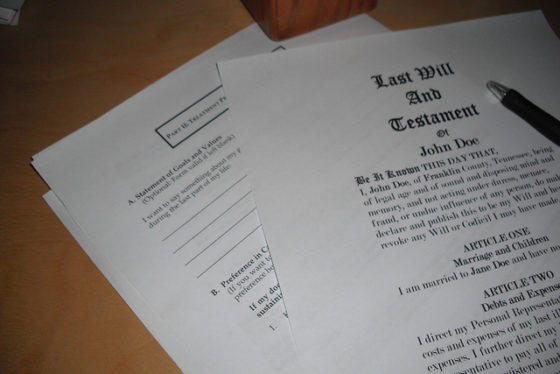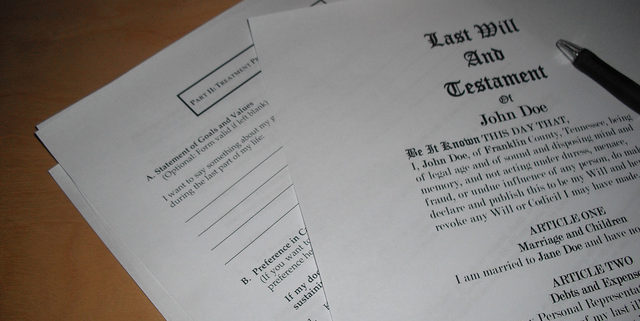California Probate Code: Managing Property After A Death
 Dealing with the death of a loved one is hard enough and the complications of inheritance and asset distribution can put a serious toll on family and friends. The process can seem confusing and complicated, especially when you’re grieving. So how does the whole thing work? How do we deal with wills (or estates without wills)? The answer lies in the California probate code.
Dealing with the death of a loved one is hard enough and the complications of inheritance and asset distribution can put a serious toll on family and friends. The process can seem confusing and complicated, especially when you’re grieving. So how does the whole thing work? How do we deal with wills (or estates without wills)? The answer lies in the California probate code.
What Is The California Probate Code?
The California probate code is the set of laws that determines how property is distributed and otherwise managed after the owner’s death. It sets out the procedures for executing a will or handling assets in the event that there is no will. The code allows for a couple of different options when dealing with an estate depending on the will, the value of the estate, and the type of property in the estate.
The Simplified Process
If the deceased left a will and the estate is worth less than $150,000, there is a simplified procedure for handling the asset handover. The people named in the will simply need to wait for 40 days after the death and then file an affidavit with the court and the property will be transferred. Under the California probate code, the value of the estate includes real and personal property and any life insurance or retirement benefits that will be paid to the estate. It does not include property held in trust, cars, boats, property that passed directly to the spouse of the deceased, and certain other assets. Cal. Prob. § 13050-13054.
While a will is generally enforced as written, there may be certain exceptions because California is a communal property state. If you’re married, your spouse is entitled to half of all the assets acquired during the marriage and half of any assets acquired prior to the marriage that were shared with the spouse. That’s true even if you have a will and leave your spouse out of it.
If there’s no will and the estate is worth less than $150,000, the California probate code determines who is entitled to the property. For example, if you’re married and have no children then your spouse gets everything. If you have no spouse or children, your parents and/or siblings will inherit. If you have a spouse and children, a spouse and parents, or a spouse and children, the property will be divided between them. If you have no immediate family, property will go to more removed relatives of you and your spouse. If the state can’t find any family members to inherit, then your property will go to the state.
Probate Court
Estates worth more than $150,000 will have to go through the probate court. That means filing a Petition for Probate in order to open a case; that form offers several different options and you’ll likely need to speak to an attorney to determine which one is appropriate in your case. If there is a will, whoever has the original copy must deliver it to the probate court within 30 days of the death – if it’s late, he or she may be sued for damages associated with the delay. They also need to send a copy to the executor of the will (the person the deceased chose to handle the administration of the estate). If there is no will, then the court will appoint an administrator (usually a spouse or close relative) to manage the process.
Once the case is filed, the court will schedule a hearing date. Everyone that may have a right to inherit (including family members that aren’t named in the will) must be notified of the hearing. The executor or administrator will then gather up the assets and file an inventory with the court and the court will decide how the assets are distributed. As we mentioned above, they’ll generally follow the will if there is one (barring certain exceptions) and otherwise will follow the California probate code’s guide for “intestate” succession for estates without a will.
Once the court signs off on the distribution of assets, the executor or administrator will actually handle the distribution and file a report with the court showing that it was done according to their orders. Then the case will be closed.
Managing Estates In Practice
Even on paper, the process seems somewhat complex. In the real world, where estates have debts and strange assets and family members and friends that want specific items and are willing to fight for them, the probate process can get messy very quickly. The best thing you can do for your estate is to meet with an experienced estate management attorney and make sure your affairs are in order. If you’re dealing with a family member’s estate, an attorney can help you make sure the process is handled fairly and legally.
The whole inheritance issue can be thorny, but it has to be dealt with. Be informed and proactive to make it as smooth as possible for yourself and your family.
Are you in search for a certified attorney to represent you?
Let us help you find one today!


